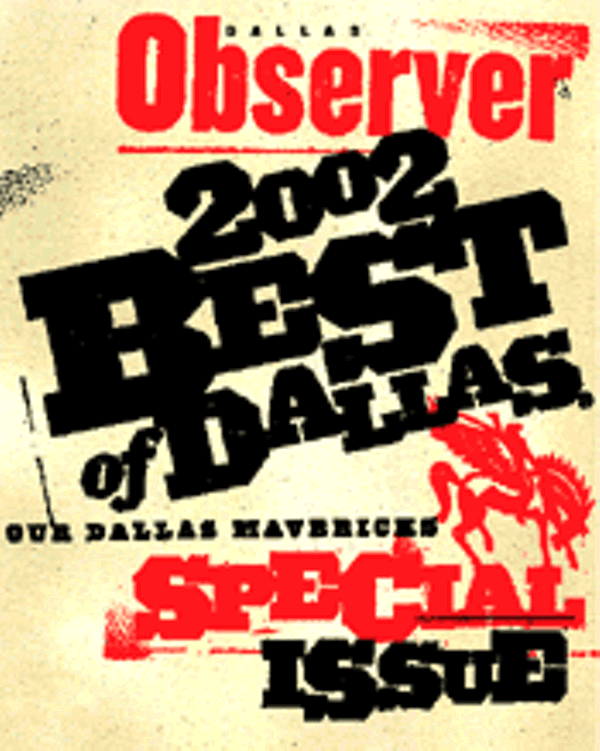Since we have trashed most of The Dallas Morning News columnists at some time or another during the year, it would be damn inconsistent, if not bordering on hypocritical, to celebrate them now. But what the heck. Crow is an acquired taste and one that we don't mind indulging, particularly when we see talent within the otherwise banal and gutless op-ed pages of the News. Unlike many of his colleagues, columnist Ruben Navarrette is not afraid to take on the establishment, be it business or political. He chastises the Bush Administration for using the war as an excuse to deprive individuals of their civil rights. He chastises Republican senatorial candidate John Cornyn for playing politics by demanding a too-little-too-late investigation into the Tulia, Texas, mass drug arrests. He chastises the school board for denying Hispanics representation consistent with their demographics. Yet make no mistake: His politics are often conservative, though witnessed through the refreshing lens of cultural diversity. His voice is clear, his opinions clearer, and unlike many at the DMN, you don't come away from his writing questioning where he is coming from and which interest group he is trying not to offend.





